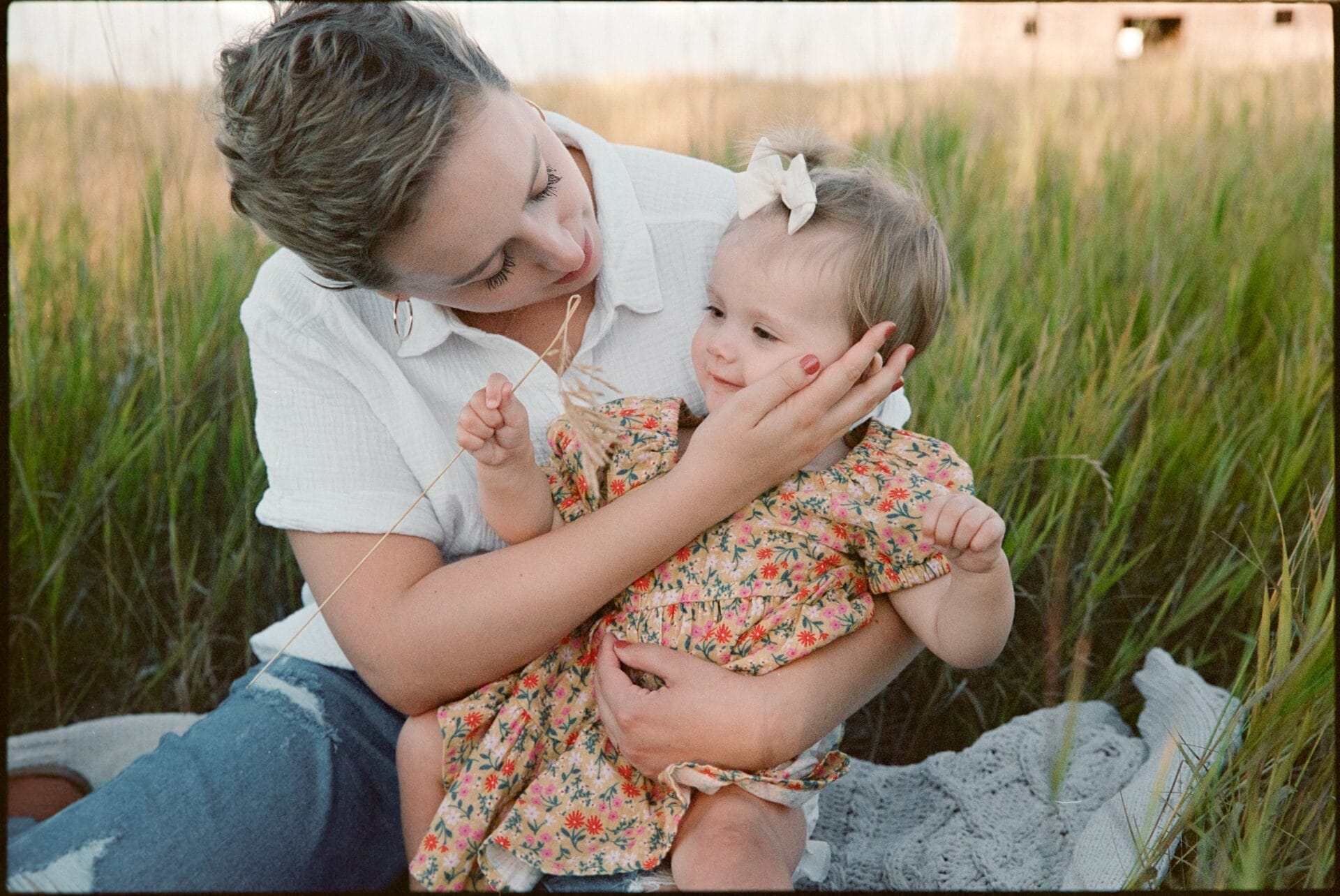A member of our Bobbie x Breasties family since 2021, Kait Bovard knows that hope thrives in both familiar and unlikely places. Her faith, her family, and the online support she sought after her first metastatic breast cancer diagnosis at age 21 have seen her through days (years) of uncertainty. But she’ll be the first to tell you that the greatest challenge of her diagnosis is staying present, to appreciate every moment of every “season” with baby Everly, now 1.
Kait welcomed us into her family home in Montana with characteristic warmth and grace, and the hope that her story might inspire other women and mothers to advocate for their health—which starts with not taking no for an answer.
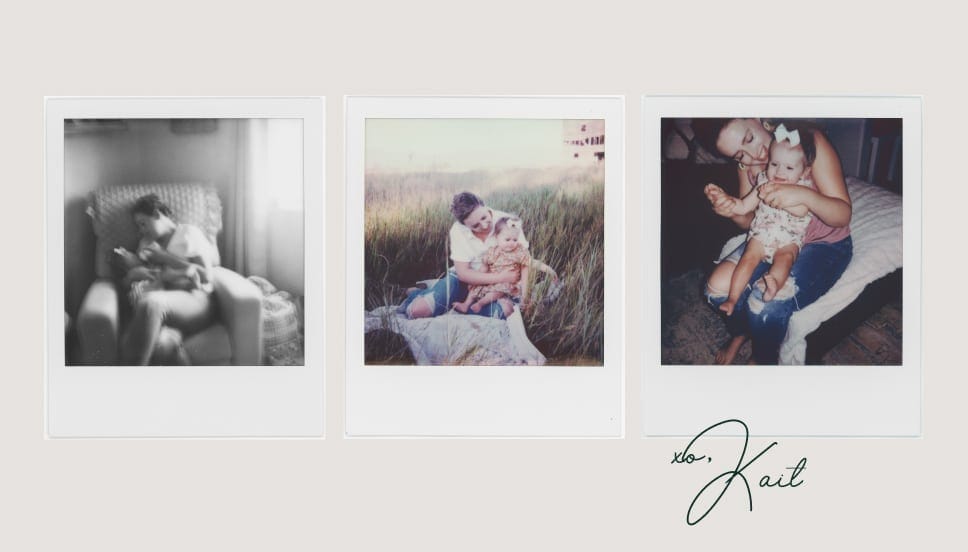
How did you discover you had young breast cancer?
I was diagnosed when I was 21, so I was very young. I had been dating my now-husband for five years, all throughout high school, and we were moving to Montana the week after we got married. I knew that I wanted to do something with my life that brought me joy and filled me with passion. I didn’t know exactly what that looked like, but I did move from Washington to Montana at 21 to start with an organization that travels the world and serves people that are less fortunate. And I knew that I wanted to be a mom. Those were the two things that I knew in my heart more than anything else.
I found a lump in my right breast on my honeymoon. But I was thinking, “I’m 21 years old, no one in my family’s ever had breast cancer. It’s not that.” So I came home, I told my mom about it and we went and saw the doctor, and the doctor said it was nothing to worry about, that there’s a very low chance that it’s anything serious.
Push for a biopsy.
Kait
The tiny pea-sized lump started growing pretty exponentially, four months since I had my initial appointment. I went to the doctor in Montana, they did an ultrasound, and also assured me that it was nothing to worry about—and actually took a syringe and drained fluid from my body.
How did you begin advocating for your own health?
Two months later, the lump was about the size of a tennis ball, and my breast had started to turn black and purple, and it was protruding out of my breast. I was two weeks away from going overseas to Cambodia for three months to serve. And I went to the doctor and I’m like, “I can’t go to Cambodia with this thing exploding out of my body.”
I didn’t know what advocating for yourself looked like. I didn’t know what to push for. I was still, it felt like, a kid. Finally (this was the third visit) they did another ultrasound. They called it a few different things over the course of the time—a fibroadenoma, a cyst, all the things. And then they did a biopsy.
Now, looking back, I know that that’s the only way for them to know what it is inside of you. I did a biopsy and that’s when I found out that it was breast cancer. It’d been six months since I found the lump to the time that I got diagnosed. By the time I was diagnosed it was late stage three.
No one’s going to advocate for yourself like you can.
Advocate for yourself. Push, push, push as hard as you can. Don’t take no for an answer. You know your body more than anyone else.
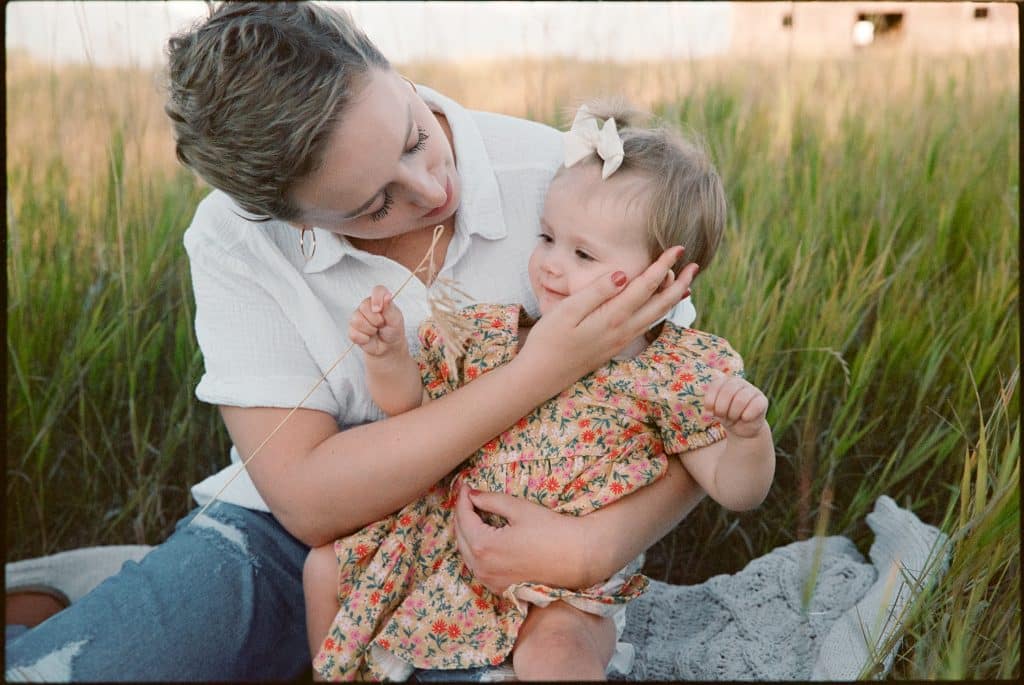
Mammograms for women under 40
Towards the beginning of my diagnosis, I called a mammogram clinic in Kalispell where I live, and I told them that I needed to get in for a mammogram. They asked me my birthdate and said, “Oh, we don’t mammogram women under 40.” I can’t tell you how many doctors told me 21 year-olds don’t get breast cancer.
21 Year olds don’t get breast cancer
I can’t tell you how many doctors told me 21 year-olds don’t get breast cancer. The more that I searched and looked online, the more that I realized it’s more common than we think.
It was super sad to know that other women my age were also dealing with it, but it did bring a sense of I’m not alone. I remember in those first two weeks after the diagnosis going on Instagram and searching the hashtag ‘young breast cancer’ and finding so many people that were walking the path that I was about to embark on.
That was really helpful, for me to see that there are women, young like me, going into this battle and they’re coming out the other end.
What was your metastatic breast cancer treatment like?
A month after I got diagnosed, I was in the chemo chair. I started with a drug that they call the Red Devil, and I just remember being like, “What is my life?” I did 16 rounds of chemotherapy. At that point they re-staged me to see how the cancer responded to the chemotherapy.
I didn’t have a full response, so from there I had a double mastectomy surgery. Because I still had cancer left over after the chemotherapy, they did 30 rounds of radiation to the spot where the cancer was. And at that point I was declared cancer free and in remission.
Getting through a double mastectomy
I really, really clung to my faith— that brought me peace throughout my journey. I was so open and honest with my husband. I can’t say enough amazing words about him, and then my support system both online and in-person.
It definitely fueled me, just thinking about being a mom someday. The scary part was knowing that I was pumping all of these chemicals and poison throughout my body that could potentially stop me from being able to do that naturally. But I knew, no matter what, when I came out on the other end of it, I would be a mom, whether it was biologically or through adoption. So I pushed and pushed and I prayed.
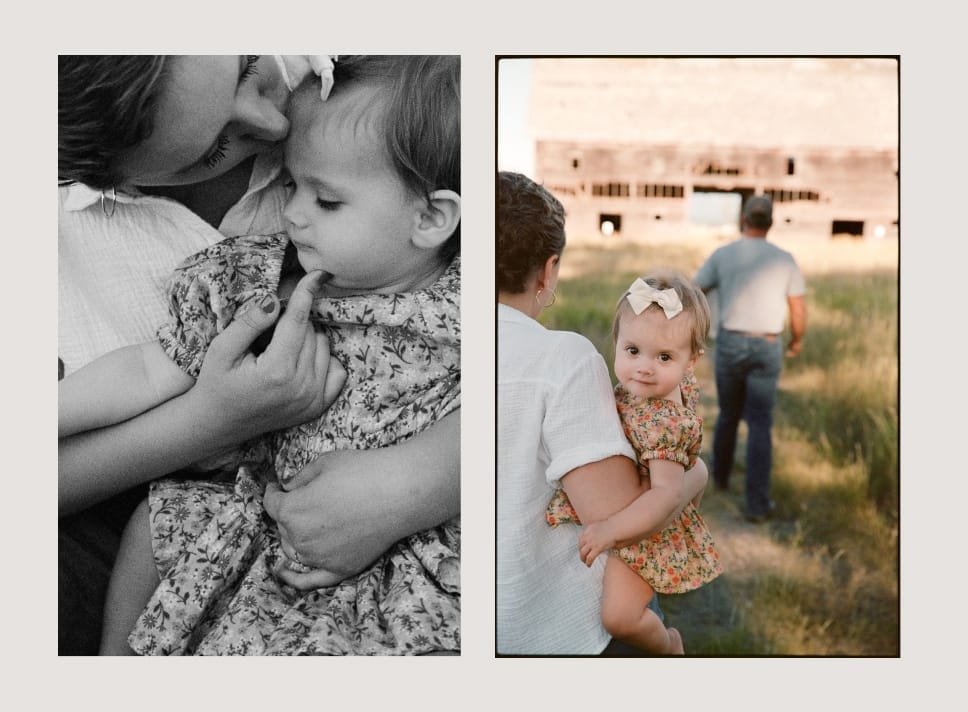
Tell us about your fertility journey after cancer
Once I was cancer-free, my doctor put me on a maintenance drug that they suggest you be on for five years after going through treatment. I remember being on the drug, going to therapy, getting stronger every day, learning my new body, all these things. I remember a year and a half post-remission, meeting with my doctor and being like, “Okay, it’s almost two years. What are we thinking?” Literally, the day that we were allowed to try to have a baby, we did. And the very next month we got a positive pregnancy test. So it was totally miraculous, so beautiful.
My body had just been through so much, but it carried her so well.
How was it to be cancer free and mom to a newborn?
I felt like everything that I’d ever wanted was right in front of me. The postpartum season, that first couple months definitely wasn’t easy, but I felt like the overwhelming gratitude outweighed the hardships that I was experiencing.
My baby was only two months old, and I was experiencing a really strong pain in my abdomen. I thought that it was postpartum-related. Then it started to get excruciating, to the point where one night I literally couldn’t sleep, and we headed to the ER.
Receiving a second cancer diagnosis
I think it was two in the morning when I finally got my abdomen screening and the doctor came in and sat down and I knew immediately that something was really not okay. I had a 10 centimeter large tumor on my liver, which is huge, ginormous.
Oh, it was the worst moment I’ve ever experienced. I’m in this hospital in the middle of the night and my baby was sleeping in her car seat, and right when they told me she woke up hungry and started screaming. So my husband and I are trying to comfort her and feed her all the while taking in this news. I was just like, “No, no, no. This cannot be happening to me.”
How did you pick up the pieces of that and keep going with a newborn?
I knew, looking into that little girl’s eyes, that she was going to be my reason to fight. So I started fighting again—going through chemotherapy again, losing my hair again, being really, really, really tired, and praying that the treatment worked. I started with 12 rounds of chemotherapy while my baby was two to five months old. My mother-in-law moved in to be a second set of hands.
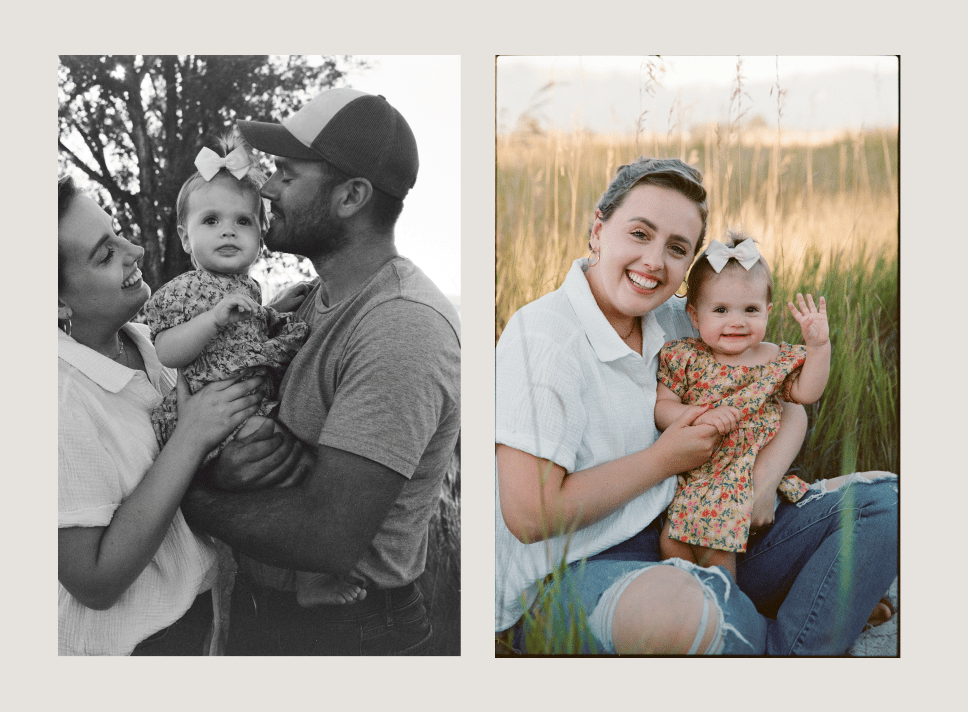
What does stage four mean, specifically for cancer in young women?
It’s considered a terminal illness. It’s treatable, but it’s not curable. You live in these increments of three months at a time, where you do a treatment and you hope that it works. Then you either continue on or you change directions.
When you’ve been through cancer before and you get news like that, do you hold your baby differently?
Yeah. It’s just that realization: none of us know how much time we have left. It sounds cliche, but you wake up each morning and you say, “Thank you. Thank you for another day to love my people and enjoy this beautiful earth.” I definitely still have my moments, of course, where I’m really scared and really sad. It’s not all butterflies and rainbows, but I think there’s this choice you have to make when faced with that decision.
I also really try to not go and scroll through my phone when I’m sitting and playing with her and just be present. Another thing that I do is every time that I’m feeding her, I pray with her. I find that to be a huge healing thing for me, having that sacred time together—finding those small, sweet moments throughout the day to center myself.
It’s really hard to not know how many birthdays you have left with your baby. I try not to think this way too much. I will say a mantra over myself to ground and remind myself what I’m fighting for. I’ll say things like I’m here today and I will be here for a long time.
How do you find the joy in each day of motherhood?
I want to make sure that I live long enough that she knows me. I say that she’s who God sent into my life to give me a reason to wake up each day. I want her to know that there is so much good and beauty and hope and joy in the world, despite what we might see. I want her to know that I fought.
Even though I don’t always feel like the fight is in me, she gives it to me.
What advice do you have for new moms?
What a gift it would be if everyone could live with the mindset that they don’t know what the future holds and they don’t know how much time they have left. We don’t take for granted the moments in front of us; we’re present and just thankful for the day ahead of us. That’s been transformative for me and I always think, I wish that people could have the same gift without having to walk through the diagnosis.
What inspired you to share your story so boldly?
I shared my initial diagnosis online. I’ve always been a really open person and it just became what it is, which has been really cool to see. I feel like I get messages every day from different people telling me that they’ve been inspired or touched by my story. It’s really helped me just as much as I feel like it’s helped the people who’ve reached out and shared with me.
You spoke about advocating for yourself, but do you feel like there is a fight to be had on a policy level?
I remember when I applied for the Bobbie Sponsorship and seeing all of the things that you guys created and getting fired up. I never actually thought about it that way— that [survivors] are offered a breast pump, but they aren’t offered help with formula.
Breast cancer survivors deserve equality with the women that didn’t have to walk that path as well.
There’s so many women, like me, whose greatest desire in the world is to be a mom and who have also walked through breast cancer. In order to reach that dream and goal of theirs, sometimes they have to walk through the fire like that— mastectomy moms deserve equality with the women that didn’t have to walk that path as well.
Bobbie is opening up our sponsorship again— What do you want to say to the women who are about to join the Bobbie x Breasties community?
You’re about to be very blessed. It’s just really cool to connect with other women who are walking the same path. And knowing that you’re feeding your baby really high quality, organic baby formula. I actually dreamed of feeding my baby Bobbie before the sponsorship and I was feeding her stuff that we could afford with our budget before the sponsorship opened. Then I remember messaging someone who runs your Instagram and being like, do you guys do any kind of help for Breasties? It all just kind of fell together and it was such a huge blessing for us. It was awesome.
From all of us at Bobbie, we are endlessly grateful to you, Kait, for your words, your vulnerability and strength. We are lucky to have you as part of the Bobbie for Change family. Thank you.
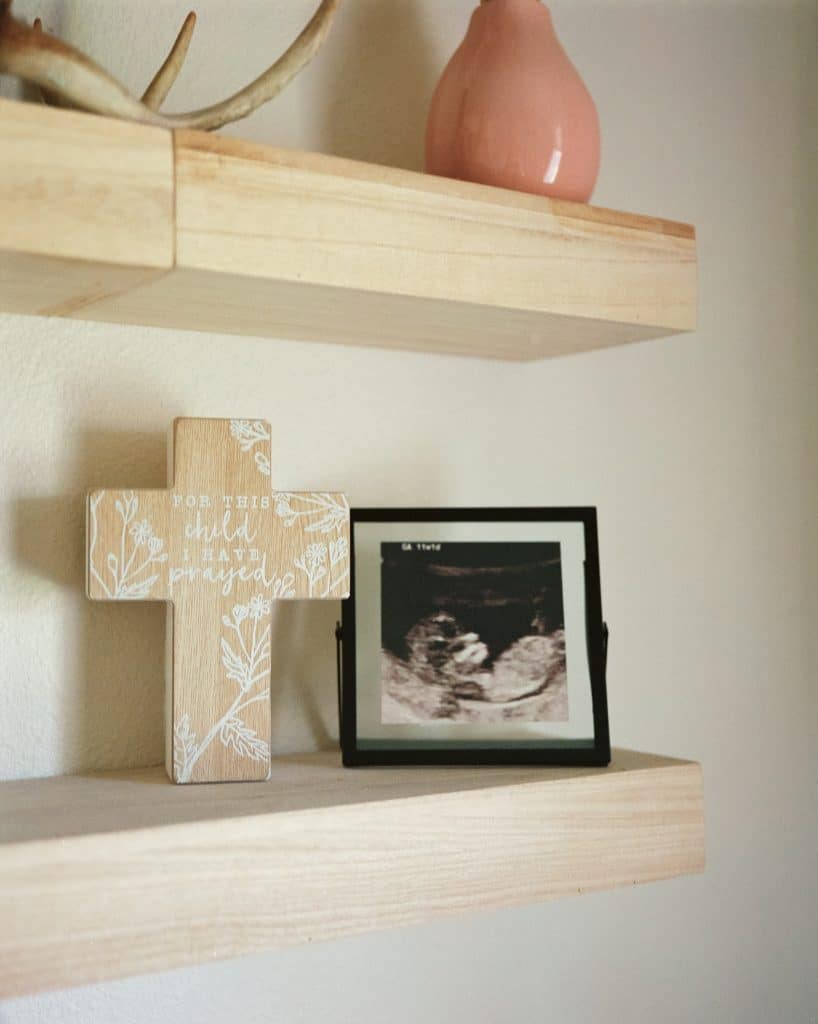
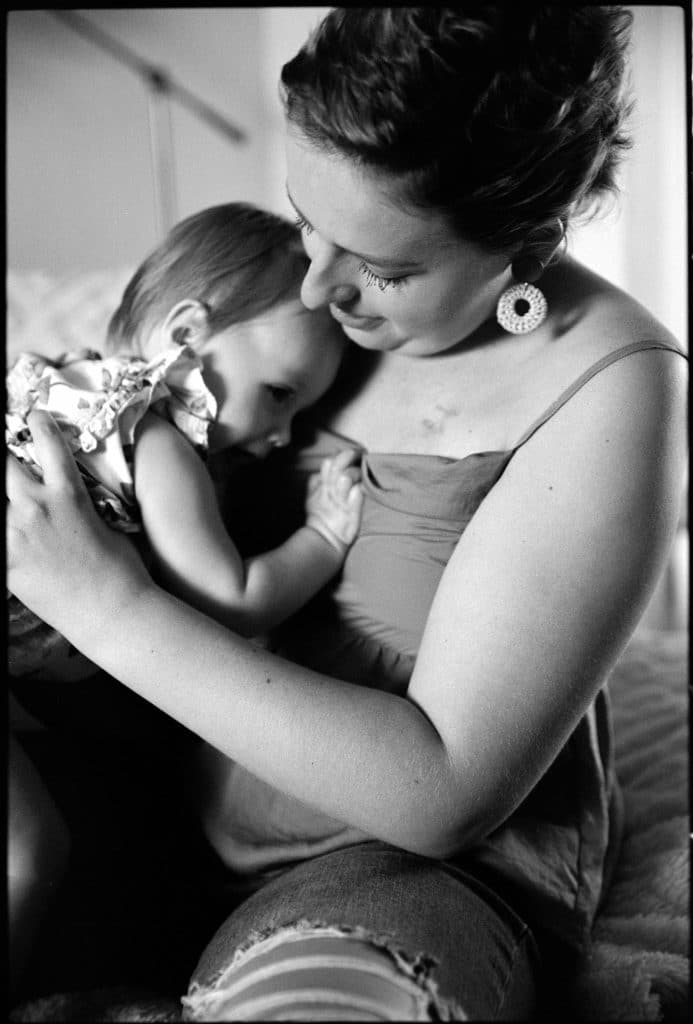
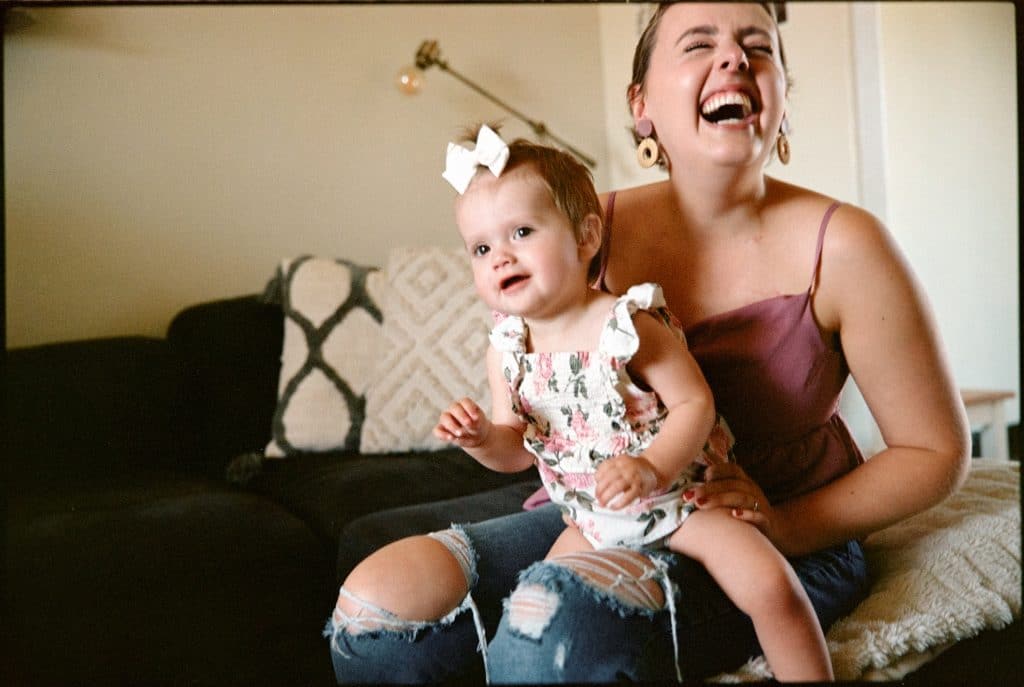
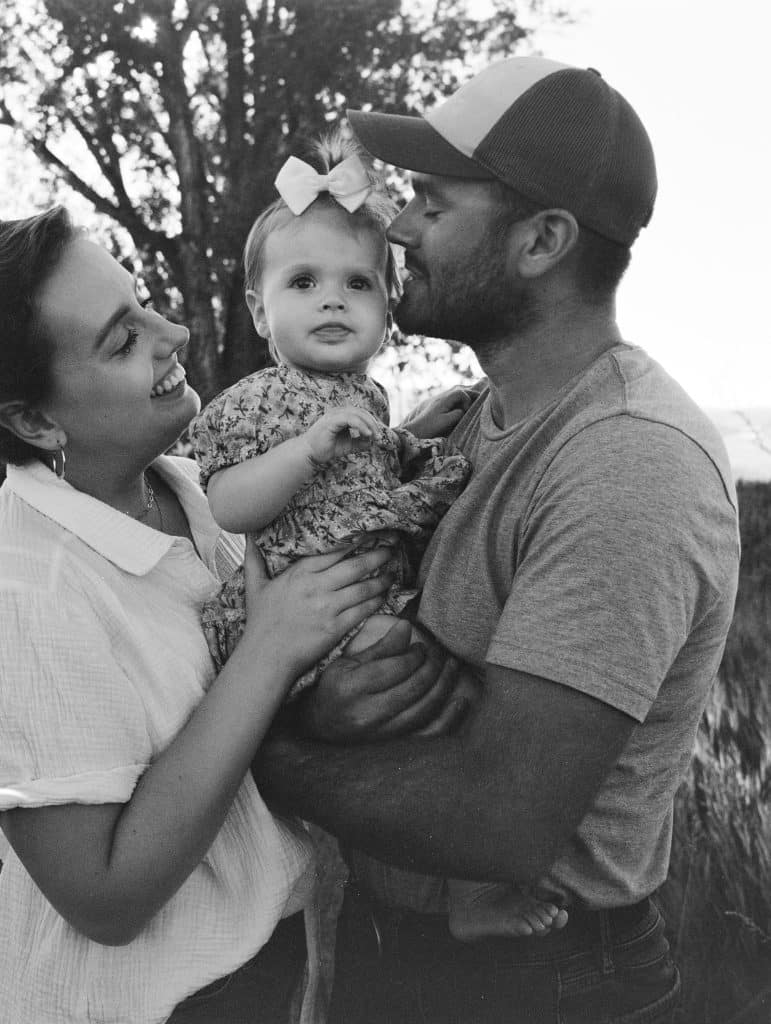
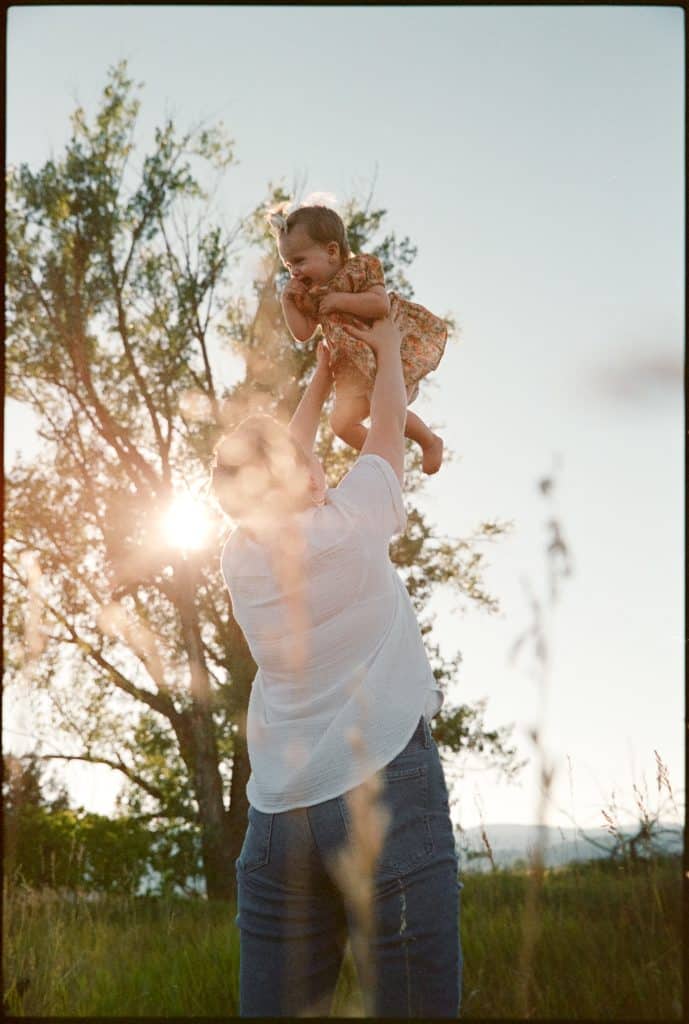

Stay tuned every month to get the scoop on modern parenthood from our community. And remember, you’re doing amazing.
Xo,
Bobbie

